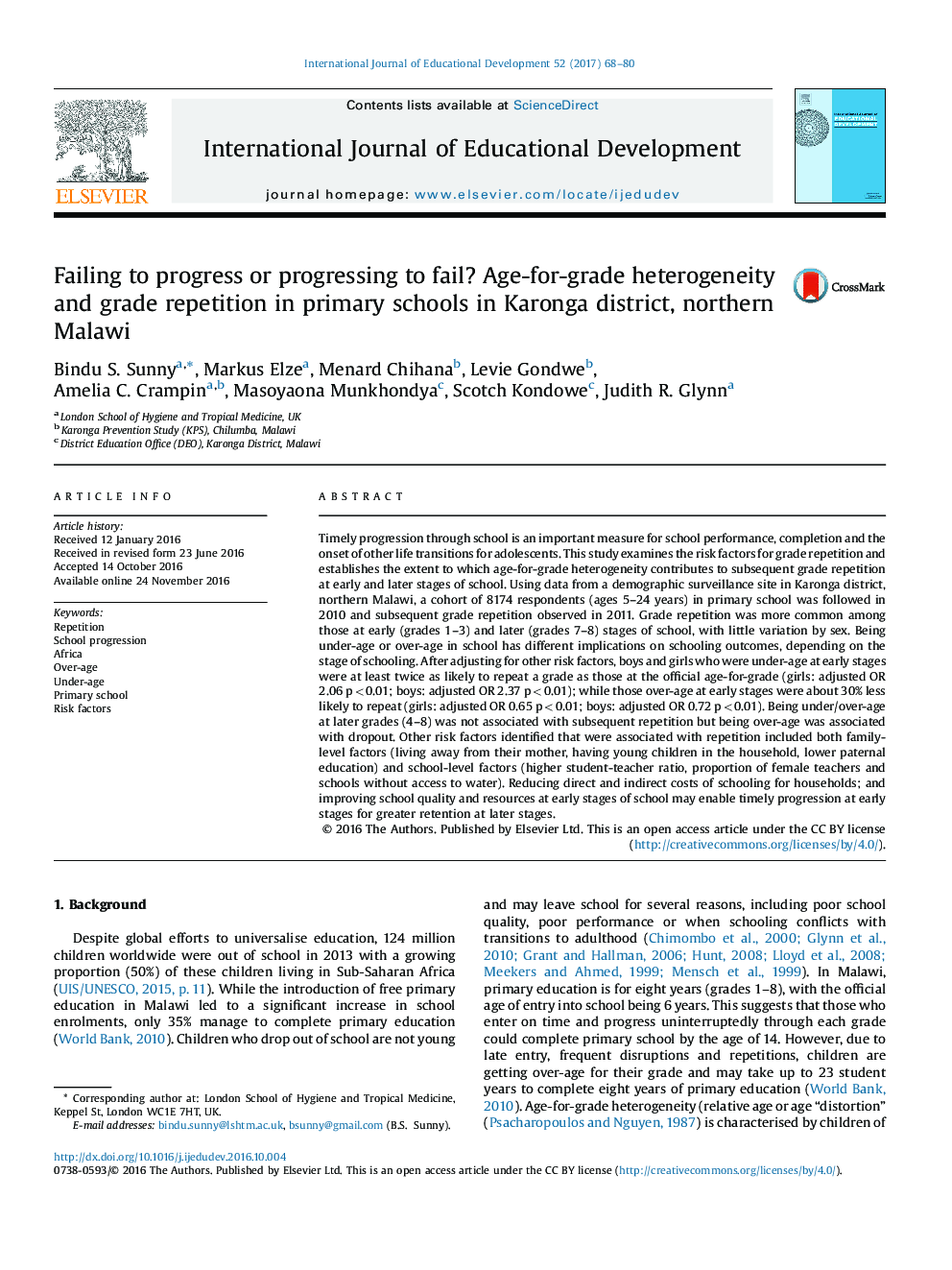| کد مقاله | کد نشریه | سال انتشار | مقاله انگلیسی | نسخه تمام متن |
|---|---|---|---|---|
| 4938533 | 1435091 | 2017 | 13 صفحه PDF | دانلود رایگان |
- Grade repetition leads to children getting over-age for their grade.
- In a cohort study of >8000 children in rural Malawi we assessed risk factors for repetition and the effect of age-for-grade on repetition in the subsequent school year.
- Both household-level and school-level factors were associated with repetition.
- In grades 1-3 under-age children were more likely and older-age children less likely to repeat.
- In grades 4-8 there was no association between age-for-grade heterogeneity and grade repetition but being over-age was associated with dropping out.
Timely progression through school is an important measure for school performance, completion and the onset of other life transitions for adolescents. This study examines the risk factors for grade repetition and establishes the extent to which age-for-grade heterogeneity contributes to subsequent grade repetition at early and later stages of school. Using data from a demographic surveillance site in Karonga district, northern Malawi, a cohort of 8174 respondents (ages 5-24 years) in primary school was followed in 2010 and subsequent grade repetition observed in 2011. Grade repetition was more common among those at early (grades 1-3) and later (grades 7-8) stages of school, with little variation by sex. Being under-age or over-age in school has different implications on schooling outcomes, depending on the stage of schooling. After adjusting for other risk factors, boys and girls who were under-age at early stages were at least twice as likely to repeat a grade as those at the official age-for-grade (girls: adjusted OR 2.06 p < 0.01; boys: adjusted OR 2.37 p < 0.01); while those over-age at early stages were about 30% less likely to repeat (girls: adjusted OR 0.65 p < 0.01; boys: adjusted OR 0.72 p < 0.01). Being under/over-age at later grades (4-8) was not associated with subsequent repetition but being over-age was associated with dropout. Other risk factors identified that were associated with repetition included both family-level factors (living away from their mother, having young children in the household, lower paternal education) and school-level factors (higher student-teacher ratio, proportion of female teachers and schools without access to water). Reducing direct and indirect costs of schooling for households; and improving school quality and resources at early stages of school may enable timely progression at early stages for greater retention at later stages.
Journal: International Journal of Educational Development - Volume 52, January 2017, Pages 68-80
